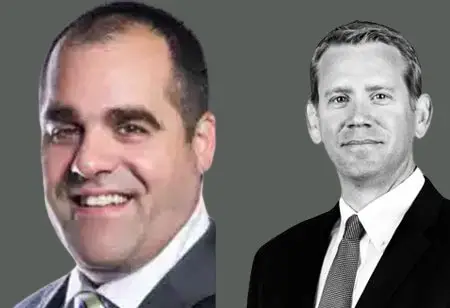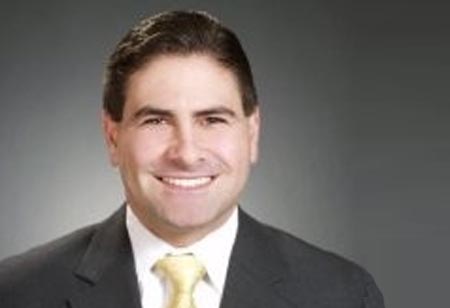Thank you for Subscribing to Construction Business Review Weekly Brief

HR 2.0: Technology, Talent and the Path to Excellence
Jody Joles is a highly experienced HR leader with deep expertise in Employee Relations, HR technology and HRIS. With a background spanning industries like oil and gas, construction and manufacturing, she excels in modernizing HR functions through strategic initiatives and innovative technology solutions. Joles is dedicated to streamlining processes, enhancing operational efficiency and driving transformative change that supports both organizational growth and employee success.
Insights about Professional Journey and Current Responsibilities
I have a strong background in Employee Relations within Human Resources, beginning my career in oil and gas, where I built HR departments by developing policies, procedures and fostering relationships with employees and managers. My experience spans oil and gas, manufacturing and construction—industries often slow to adopt new technologies, where HR struggles for a strategic seat at the table.
In many cases, HR responsibilities fall to individuals without formal HR expertise, leading to outdated processes and inefficiencies. Many do not recognize the value of having a knowledgeable human resources professional within their organization. Throughout my career, I have focused on demonstrating the strategic value of HR, emphasizing that we serve as partners to both employees and managers. My goal has been to support them in navigating daily challenges, whether related to employee relations or operational inefficiencies like the absence of a payroll or time-tracking system. Implementing technology to replace manual, paper-based processes has been a key aspect of my efforts to enhance efficiency and streamline operations.
Human Resources is more than an administrative function—it’s a strategic partner. By implementing modern solutions, we empower HR teams to focus on what truly matters—supporting employees and driving organizational success
Recognizing the need for modernization, I transitioned into HR technology and operations 14 years ago, specializing in HRIS implementations. I have led Workday implementations for large oil and gas companies and most recently, at Comfort Systems, a decentralized construction company with 50+ operating entities. Each entity operates independently, often using multiple, disconnected systems for HR, payroll, accounting and time tracking—resulting in manual processes, dual data entry and inefficiencies.
At Comfort Systems, I was brought in to lead the selection and implementation of Workday as an enterprise solution. Rather than mandating change, we offer technology solutions at the corporate level and partner with operating companies to identify their challenges and optimize their HR processes. By consolidating systems, eliminating paperwork and automating workflows, we enable HR teams to shift their focus from administrative tasks to strategic employee and manager support.
Transforming HR: A Unified Vision with Workday
We are currently in the process of implementing Workday across Comfort Systems. At this stage, 21 of our 50 operating companies have transitioned to Workday. This initiative is expected to span three to five years before full adoption across all operating companies. The transition to Workday is entirely voluntary. If an operating company has an existing system that meets its needs, there is no obligation to switch. Our approach focuses on demonstrating the benefits of a unified system, including centralized data management, enhanced reporting capabilities and improved analytics for employee information. However, the final decision rests with each individual operating company. Our goal is to provide solutions that add value and if a company’s current system is effective, we do not intervene.
Beyond the Basics: The Next Era of HR Excellence
We are continuing the phased adoption of our HRIS system, transitioning approximately 15 companies per year to Workday. This year, we remain focused on completing implementations across all necessary operating companies while expanding platform capabilities. Key initiatives include automating performance reviews and succession planning, replacing manual processes with streamlined digital workflows. In addition, after a successful pilot, we are rolling out automated merit and bonus processes across all operating companies, reducing reliance on Excel and improving efficiency.
Talent acquisition remains a significant challenge, with many of our operating companies facing difficulties in hiring and retaining a sufficient number of skilled workers to meet demand. To address this, we are optimizing recruitment and onboarding processes to accelerate hiring and get employees on-site faster. Our efforts include streamlining the application and interview processes to reduce turnaround time, allowing employees to begin work more quickly rather than being delayed by administrative tasks and training. We are also prioritizing diversity initiatives, particularly in attracting more veterans and women to the construction industry, where female representation remains low. Our focus is on broadening the talent pool and making construction careers more appealing to underrepresented groups, ensuring we meet our workforce needs effectively.
Advice for Senior Leaders and Upcoming Professionals
One of the most significant aspects of my career has been continually striving for a seat at the table and demonstrating the value and strategic importance of human resources in business. There is tremendous opportunity for HR professionals to showcase the impact of our work. Many business leaders tend to view HR primarily as a function responsible for processing paperwork and payroll. However, HR should be recognized as a key business partner—one that plays an integral role in both employee engagement and overall organizational success. By being actively involved in all aspects of the business, we can provide valuable insights that contribute to both business growth and employee development.
Embracing technology and AI is also critical. HR must take the lead in driving technological advancements within our organizations, advocating for the adoption of the latest tools and innovations. If we do not champion these advancements and highlight their strategic importance, our businesses and workplace cultures risk falling behind. Today’s workforce expects organizations to leverage modern technology, maintain a strong social media presence, and actively participate in the community. Prospective employees seek more than just a job—they want to understand how a company is evolving, what role it plays in the community and how it integrates technology and AI into its operations. To remain competitive and attract top talent, businesses must stay ahead of these trends. If we, as HR professionals, do not push for innovation and continuous improvement in these areas, we risk losing our position as an employer of choice, making it increasingly difficult to attract and retain top talent.








